The RubyMine autocompletion works mostly by completing names and keywords used throughout the project see here for some details on how that works. There is also this question that may provide some clarity as to how completion works in RubyMine.
As for the question about listing available methods in a package (in any object, really). You can use the method .methods to get an array of methods the object responds to. due to the dynamic nature of ruby and the possibility implement method_missing, the list may not contain all possible methods.
here is an example
"string".methods
#=> [:include?, :%, :*, :+, :to_c, :count, :unicode_normalize, :unicode_normalize!, :unicode_normalized?, :partition, :unpack, :unpack1, :sum, :next, :casecmp, :casecmp?, :insert, :bytesize, :match, :match?, :succ!, :+@, :-@, :index, :rindex, :<=>, :replace, :clear, :upto, :getbyte, :==, :===, :setbyte, :=~, :scrub, :[], :[]=, :chr, :scrub!, :dump, :byteslice, :upcase, :next!, :empty?, :eql?, :downcase, :capitalize, :swapcase, :upcase!, :downcase!, :capitalize!, :swapcase!, :hex, :oct, :split, :lines, :reverse, :chars, :codepoints, :prepend, :bytes, :concat, :<<, :freeze, :inspect, :intern, :end_with?, :crypt, :ljust, :reverse!, :chop, :scan, :gsub, :ord, :start_with?, :length, :size, :rstrip, :succ, :center, :sub, :chomp!, :sub!, :chomp, :rjust, :lstrip!, :gsub!, :chop!, :strip, :to_str, :to_sym, :rstrip!, :tr, :tr_s, :delete, :to_s, :to_i, :tr_s!, :delete!, :squeeze!, :each_line, :squeeze, :strip!, :each_codepoint, :lstrip, :slice!, :rpartition, :each_byte, :each_char, :to_f, :slice, :ascii_only?, :encoding, :force_encoding, :b, :valid_encoding?, :tr!, :encode, :encode!, :hash, :to_r, :<, :>, :<=, :>=, :between?, :clamp, :instance_of?, :kind_of?, :is_a?, :tap, :public_send, :remove_instance_variable, :singleton_method, :instance_variable_set, :define_singleton_method, :method, :public_method, :extend, :to_enum, :enum_for, :!~, :respond_to?, :object_id, :send, :display, :nil?, :class, :singleton_class, :clone, :dup, :itself, :taint, :tainted?, :untaint, :untrust, :untrusted?, :trust, :frozen?, :methods, :singleton_methods, :protected_methods, :private_methods, :public_methods, :instance_variable_get, :instance_variables, :instance_variable_defined?, :!, :!=, :__send__, :equal?, :instance_eval, :instance_exec, :__id__]
for a more useful list, you may want to remove methods that are inherited from Object, like so
"string".methods - Object.methods
#=> [:%, :*, :+, :to_c, :count, :unicode_normalize, :unicode_normalize!, :unicode_normalized?, :partition, :unpack, :unpack1, :sum, :next, :casecmp, :casecmp?, :insert, :bytesize, :match, :match?, :succ!, :+@, :-@, :index, :rindex, :replace, :clear, :upto, :getbyte, :setbyte, :scrub, :[], :[]=, :chr, :scrub!, :dump, :byteslice, :upcase, :next!, :empty?, :downcase, :capitalize, :swapcase, :upcase!, :downcase!, :capitalize!, :swapcase!, :hex, :oct, :split, :lines, :reverse, :chars, :codepoints, :bytes, :concat, :<<, :intern, :end_with?, :crypt, :ljust, :reverse!, :chop, :scan, :gsub, :ord, :start_with?, :length, :size, :rstrip, :succ, :center, :sub, :chomp!, :sub!, :chomp, :rjust, :lstrip!, :gsub!, :chop!, :strip, :to_str, :to_sym, :rstrip!, :tr, :tr_s, :delete, :to_i, :tr_s!, :delete!, :squeeze!, :each_line, :squeeze, :strip!, :each_codepoint, :lstrip, :slice!, :rpartition, :each_byte, :each_char, :to_f, :slice, :ascii_only?, :encoding, :force_encoding, :b, :valid_encoding?, :tr!, :encode, :encode!, :to_r, :between?, :clamp]
in your case, you may want to call OAuth.methods - Object.methods
more on the methods method here
